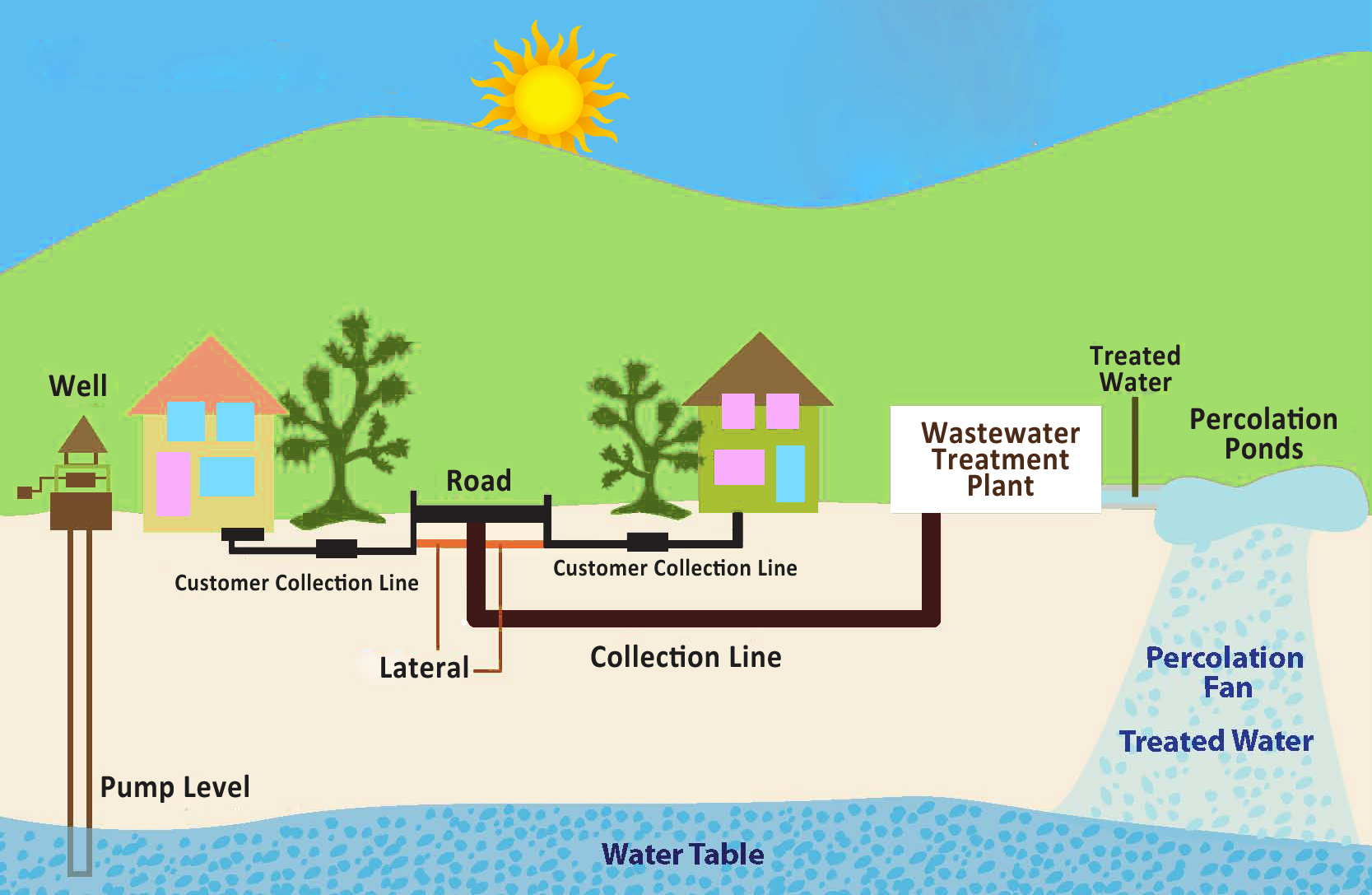Advantages Of Using a Waste Water Treatment Plant
Why use a Waste Water Treatment Plant?
- The treated water can be used in a number of applications thereby reducing the consumption of fresh water. This leads to a major saving on public resources.
- Treating Waste Water reduces the burden on septic tanks or public sewage systems and extends the life of septic tanks. Reduced water flow in the drainage system pledges better system effectiveness and also cuts the cost of production.
- It reduces the burden on the pumping network and treatment plants of municipal corporations.
- Reduced flow of polluted water in the system leads to reduced environmental impact.
- Waste Water Treatment Plants have a high efficiency and offer a payback in three to five years, making it an affordable choice.
- With municipal bodies shifting towards “Metered Billing” from lump sum billing there will be constant savings in water bills year after year.
- Scarcity of Fresh Water is a major problem. Waste Water Treatment can help reduce the impact to a large extent.
- It eases the burden on common/municipal sewage treatment plant thereby leading to a reduction in the requirement for the expansion/new sewage treatment plants.

Benefits Of Using a Waste Water Treatment Plant
Lower Fresh Water Use
It reduces the need for fresh water. Reduction on the use of fresh water can significantly reduce household utility bills. It also benefits the community by reducing demands on public water supply.
Less Strain On Septic Tank
It reduces the amount of waste water entering sewers or on-site treatment systems. This can not only benefit the individual household, but also the broader community.
Reduse Energy and Chemical Use
The use of energy and chemicals are minimized due to the reduced amount of both freshwater and waste water that needs pumping and treatment.
Uses of Treated Waste Water
- Toilet Flushing
- Floor Washing
- Gardening
How a Waste Water Treatment System Works?
Water from basins, baths and showers known as Waste Water is piped to a surge tank. It is kept in the tank for a short period of time in the tank before it is diverted to an irrigation or treatment system.
The Waste Water can be diverted either by gravity or by using a pump. The surge tank is any type of container that is appropriate to hold (but not store) the initial surge of water. It is important for the surge tank to be completely emptied each time Waste Water is dispersed to the irrigation or treatment system. Waste Water must not be allowed to it for long periods of time in the tank.
Only when there is adequate fall from the laundry/bathroom drain to the surge tank can a gravity system be used.
- Be vented
- Have a trapped overflow
- Discharge directly into the sewer or to an on-site discharge
- Be sealed
- Be vermin proof

Using a Waste Water Treatment System
A Waste Water Treatment System can highly improve the quality of waste water from baths, showers, kitchen so as to make it fit to be used for surface irrigation or in toilets and laundry. The disinfected Waste Water from a Waste Water Treatment System is pumped into a second, larger tank for storage. This water can be used for surface irrigation, for example for lawn sprayers. In other areas it may be more efficient to use a sub-surface system. A Waste Water Treatment System can be used for toilet flushing, and cold-water laundry washing.
Process Of Waste Water Treatment
Collection point – This is the point where water gets collected from a property into the treatment system. It is imperative that the collection points are properly maintained.
Aerobic screening – This process involves eliminating insoluble material from the waste water. During this process considerable amount of material is reduced into almost negligible residue which is then discharged into the public sewerage system. The remaining Waste Water then discharges into the second stage.
Biological treatment plant – In this process, air is filled into the water so that bacteria can ingest impurities up to a large extent. To ensure maximum metabolizing levels, a sustainable concentration of biomass is kept in the chamber. Consequently, almost all of the incoming waste gets cleaned, and the amount of residue is the minimum. Almost 99.9% of the Waste Water can be reused.
Ultrafiltration – the ultrafiltration process features special membranes with microscopic pores that prevent bacteria, virus, and particles. Regular cleaning on membrane by air scouring is necessary so that maximum cleaning is assured.
Disinfection using UV method – Ultraviolet lamps acts as an additional barrier and is used for additional protection against pathogens.
Chlorination – Chlorine is added to the water in a defined pattern remove impurities by ionizing water molecules.
Storage of treated water – Treated Waste Water is kept in the storage container so that it can be used in several applications such as toilet flushing, surface irrigation and gardening to name a few.
Why Use Our Waste Water Treatment Plants
- It is easy to install
- User-friendly consoles
- It produces excellent efficiency
- It requires very little maintenance
- Effluent quality
- It gives steady performance
- Low on resource consumption
Copyright © 2020 The SV group. all rights reserved.